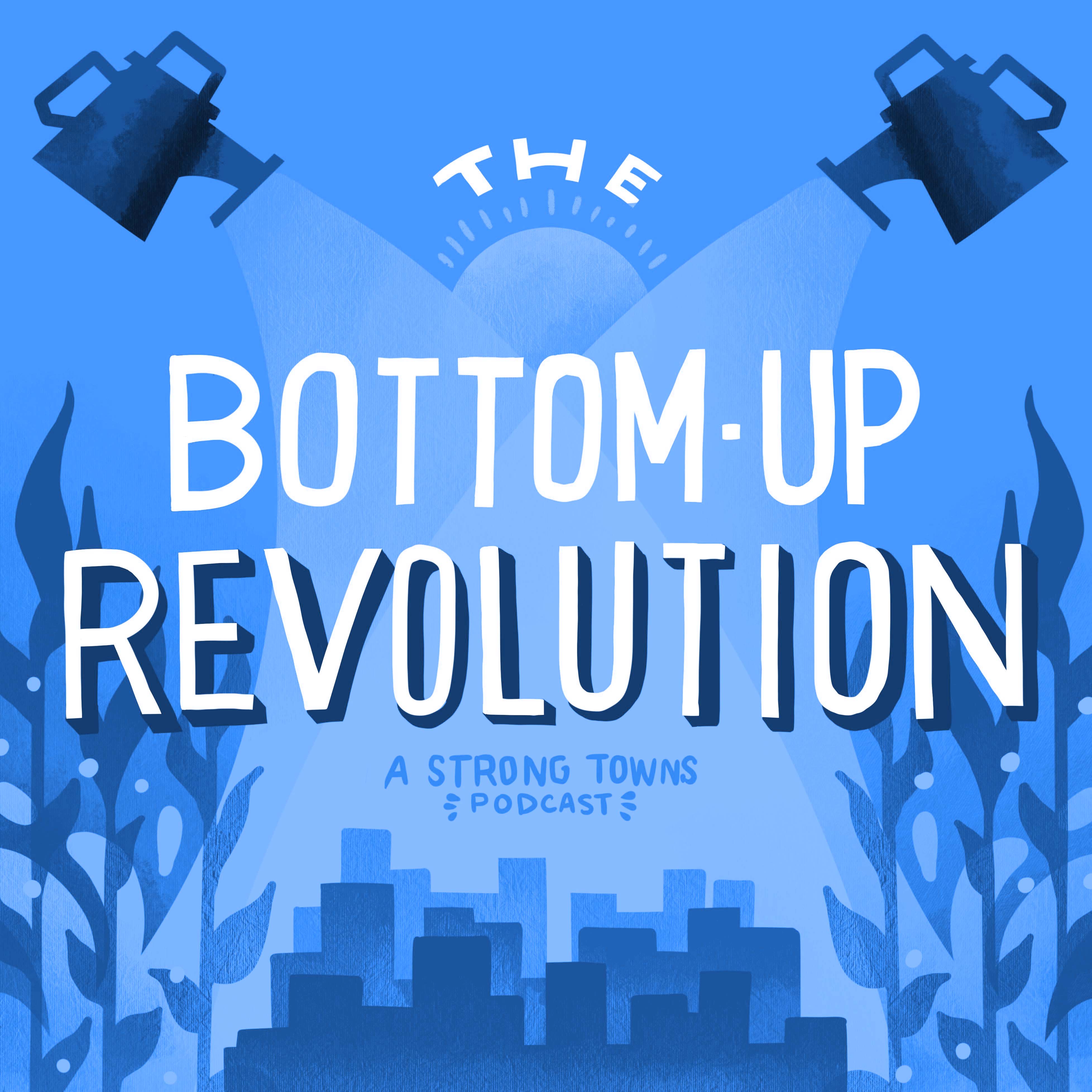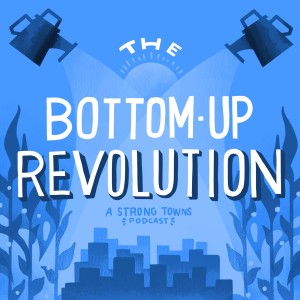
562.1K
Downloads
301
Episodes
The Bottom-Up Revolution features the stories of the Strong Towns movement in action. Hosted by Tiffany Owens Reed and Norm Van Eeden Petersman, it's all about how regular people have stepped up to make their communities more economically resilient, and how others can implement these ideas in their own places. We’ll talk about taking concrete action steps, connecting with fellow advocates to build power, and surviving the bumps along the way—all in the pursuit of creating stronger towns. Each episode features a Strong Towns advocate who is making positive change in their community.
Episodes

Thursday Jun 23, 2022
Jonathan Curth: Ending Parking Minimums and Seeing the Results
Thursday Jun 23, 2022
Thursday Jun 23, 2022
A few weeks ago, we announced a series of five core campaigns we’re going to be focusing on over the next few years at Strong Towns, including ending highway expansion, encouraging transparent local accounting, advocating for safe and productive streets, legalizing incremental housing development, and ending parking minimums. None of these are new issues for us, but we’ll be placing a special focus on them and providing a ton of resources and action steps you all can take in your cities to make these Strong Towns visions a reality.
Today’s guest, Jonathan Curth, is here to talk about that last campaign issue: ending parking minimums. He’s the development services director for the city of Fayetteville, Arkansas—one of the first U.S. cities to eliminate commercial parking minimums. These are laws that mandate the amount of parking spaces a business needs to provide. They’re on the books in many U.S. cities and they reach a point of absurdity—an overreach of government that harms local businesses, small-scale developers, home owners, and renters. Luckily, a growing movement of cities is smashing these outdated laws, and you can see the full list on our map of cities that have ended parking minimums.
Jonathan talks a lot more about why these regulations are a problem and why Fayetteville decided to put an end to them, not only because they were harming business opportunities, but also because they were leaving important historic buildings downtown vacant or at risk of destruction, simply because those places were built before cars or parking minimums were a thing. Jonathan also talks about the slow, but important, results that have come about since minimums were eliminated in Fayetteville, including new restaurants opening, vacant lots getting filled, and city staff having a much quicker process to approve new permits for developments and business start-ups.
At the end of the day, eliminating parking minimum requirements is about getting rid of a law that’s unnecessary. Let the market, business owners, and property owners decide what parking is needed, otherwise you’ll end up with empty lots instead of productive places.
Additional Show Notes
-
Explore parking resources, case studies, and more in our Action Lab.
-
View a comprehensive map of cities that have ended parking minimums.
-
Send your story ideas and guest suggestions to rachel@strongtowns.org.
-
Support this podcast by becoming a Strong Towns member today.

No comments yet. Be the first to say something!